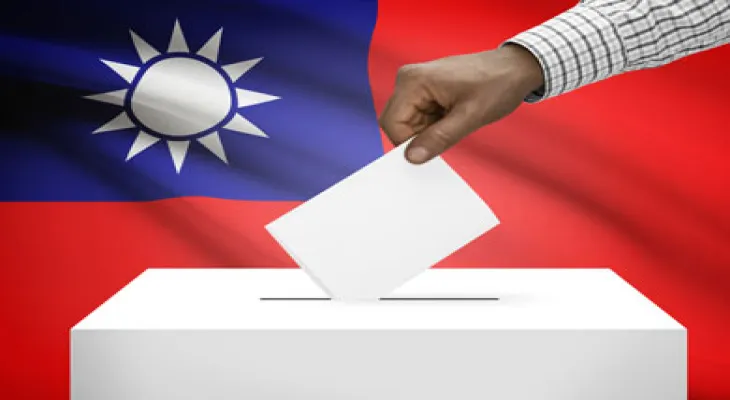Search here
Newspaper
Search here

Arab Canada News
News

Published: January 13, 2024
Polling stations opened today, Saturday, on the island of Taiwan in East Asia to voters; to cast their votes to elect a new president and parliament.
There are about 19.5 million registered voters who are scheduled to cast their votes starting from 8 a.m. local time (0000 GMT).
Tensions between China and Taiwan dominated the election campaign, as the election winner will decide how relations with Beijing will develop.
Alongside electing the president, voters choose 113 legislators.
The Chinese leadership views Taiwan's Democratic Progressive Party, which supports Taiwan's independence, as separatist, even if it has no intention to officially declare independence.
Taiwan's current president, Tsai Ing-wen, cast her vote after the polling stations opened.
Tsai said, "The citizens of a democratic country can decide the future of their country with the ballots in their hands.. I would like to urge citizens to go out and vote as soon as possible. Remember, this is both a right and a duty of citizens."
Tsai, who was re-elected in 2020, is not eligible to run for a third term.
William Lai represents the Democratic Progressive Party instead of Tsai.
The presidential candidate of the Taiwan People's Party, Ko Wen-je, also cast his vote in Taipei.
Ko told journalists, "Do what you have to do every day. Then plan for the next stage," and predicted good turnout in the elections thanks to the good weather.
The elections are closely monitored and highly competitive as they could grant the ruling Democratic Progressive Party, which is met with great contempt in Beijing for resisting Chinese rule, another four years in power.
The Democratic Progressive Party has held the presidency and formed a parliamentary majority since 2016.
It is noteworthy that Taiwan has had a separate government since 1949 and has evolved into a vibrant modern democracy.
However, Beijing considers the self-governing island of Taiwan part of its territory and has threatened to seize it by force if any official steps toward independence are taken.
In the period leading up to the elections, China issued repeated threats to Taiwan and ordered voters to "stand on the right side of history" and choose pro-China parties, such as the opposition Kuomintang party, also known as the Chinese Nationalist Party.
Comments